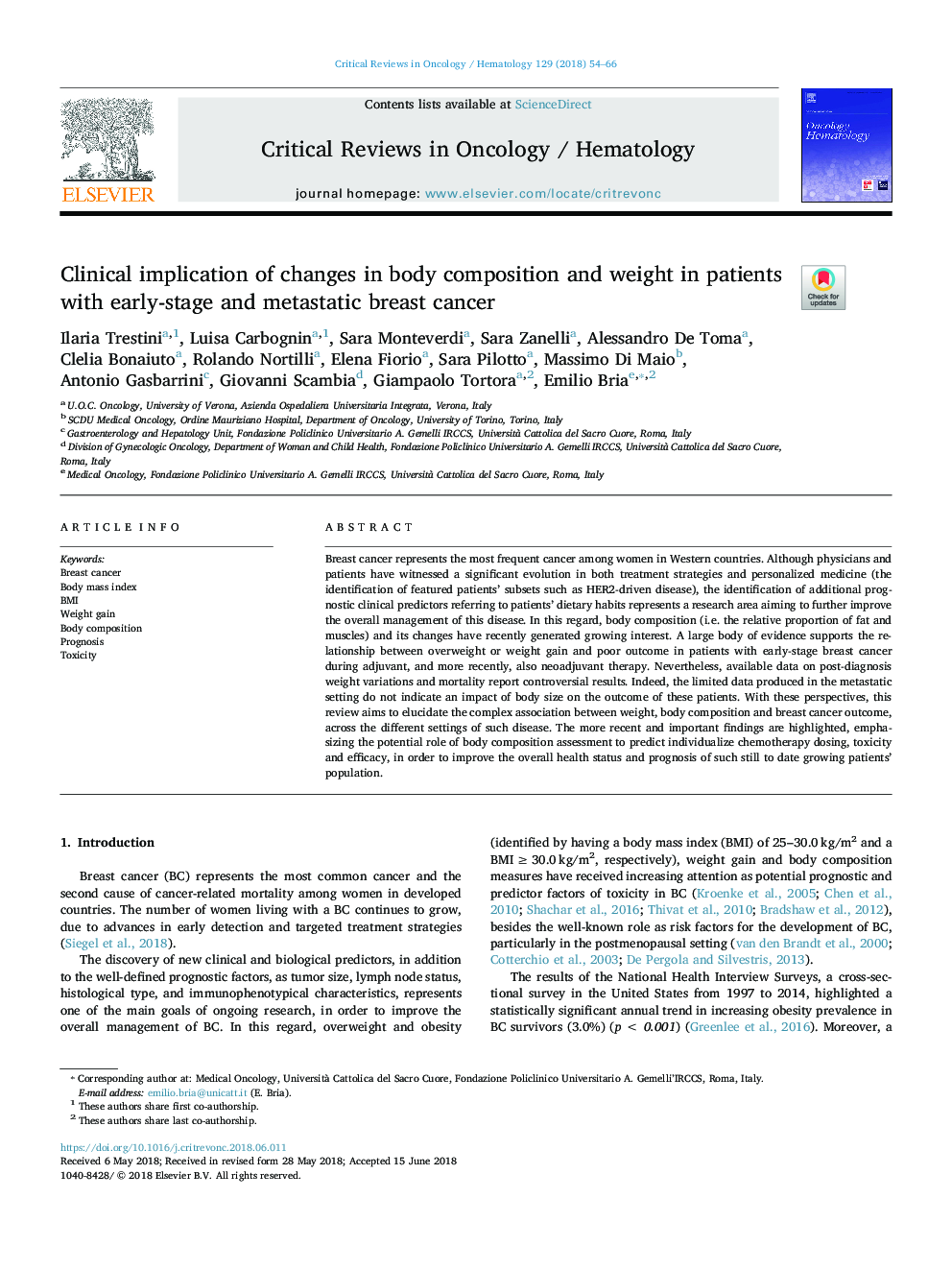| Article ID | Journal | Published Year | Pages | File Type |
|---|---|---|---|---|
| 8733525 | Critical Reviews in Oncology/Hematology | 2018 | 13 Pages |
Abstract
Breast cancer represents the most frequent cancer among women in Western countries. Although physicians and patients have witnessed a significant evolution in both treatment strategies and personalized medicine (the identification of featured patients' subsets such as HER2-driven disease), the identification of additional prognostic clinical predictors referring to patients' dietary habits represents a research area aiming to further improve the overall management of this disease. In this regard, body composition (i.e. the relative proportion of fat and muscles) and its changes have recently generated growing interest. A large body of evidence supports the relationship between overweight or weight gain and poor outcome in patients with early-stage breast cancer during adjuvant, and more recently, also neoadjuvant therapy. Nevertheless, available data on post-diagnosis weight variations and mortality report controversial results. Indeed, the limited data produced in the metastatic setting do not indicate an impact of body size on the outcome of these patients. With these perspectives, this review aims to elucidate the complex association between weight, body composition and breast cancer outcome, across the different settings of such disease. The more recent and important findings are highlighted, emphasizing the potential role of body composition assessment to predict individualize chemotherapy dosing, toxicity and efficacy, in order to improve the overall health status and prognosis of such still to date growing patients' population.
Related Topics
Health Sciences
Medicine and Dentistry
Hematology
Authors
Ilaria Trestini, Luisa Carbognin, Sara Monteverdi, Sara Zanelli, Alessandro De Toma, Clelia Bonaiuto, Rolando Nortilli, Elena Fiorio, Sara Pilotto, Massimo Di Maio, Antonio Gasbarrini, Giovanni Scambia, Giampaolo Tortora, Emilio Bria,
